98 papers:
 ITiCSE-2015-AycockPS #design #experience #game studies #python
ITiCSE-2015-AycockPS #design #experience #game studies #python- A Game Engine in Pure Python for CS1: Design, Experience, and Limits (JA, EP, SS), pp. 93–98.
 ICFP-2015-Chlipala #compilation #functional #optimisation
ICFP-2015-Chlipala #compilation #functional #optimisation- An optimizing compiler for a purely functional web-application language (AC), pp. 10–21.
 ICFP-2015-NewtonFV #adaptation #scalability
ICFP-2015-NewtonFV #adaptation #scalability- Adaptive lock-free maps: purely-functional to scalable (RRN, PPF, AV), pp. 218–229.
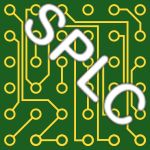 SPLC-2015-BeucheH #lifecycle #product line #using
SPLC-2015-BeucheH #lifecycle #product line #using- Using pure: : variants across the product line lifecycle (DB, RH), pp. 352–354.
 IFL-2014-AchtenSDP #composition #interactive #programming #scalability
IFL-2014-AchtenSDP #composition #interactive #programming #scalability- Task Oriented Programming with Purely Compositional Interactive Scalable Vector Graphics (PA, JS, LD, RP), p. 7.
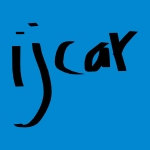 IJCAR-2014-LahavZ #calculus #satisfiability
IJCAR-2014-LahavZ #calculus #satisfiability- SAT-Based Decision Procedure for Analytic Pure Sequent Calculi (OL, YZ), pp. 76–90.
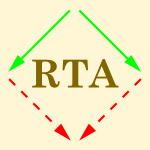 RTA-TLCA-2014-RouxD #type system
RTA-TLCA-2014-RouxD #type system- The Structural Theory of Pure Type Systems (CR, FvD), pp. 364–378.
 CASE-2013-LiuTYG #modelling
CASE-2013-LiuTYG #modelling- Modeling of pure percussive drilling for autonomous robotic bridge decks rehabilitation (FL, MT, JY, NG), pp. 1063–1068.
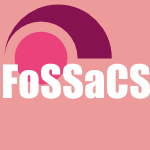 FoSSaCS-2013-HofmannRS #morphism #pointer #source code
FoSSaCS-2013-HofmannRS #morphism #pointer #source code- Pure Pointer Programs and Tree Isomorphism (MH, RR, US), pp. 321–336.
 ICFP-2013-McDonellCKL #functional #gpu #optimisation #source code
ICFP-2013-McDonellCKL #functional #gpu #optimisation #source code- Optimising purely functional GPU programs (TLM, MMTC, GK, BL), pp. 49–60.
 PPDP-2013-Holdermans #data type #functional #guidelines #random testing #testing
PPDP-2013-Holdermans #data type #functional #guidelines #random testing #testing- Random testing of purely functional abstract datatypes: guidelines for dealing with operation invariance (SH), pp. 275–284.
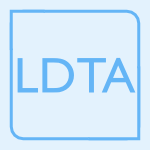 LDTA-J-2009-SloaneKV #attribute grammar
LDTA-J-2009-SloaneKV #attribute grammar- A pure embedding of attribute grammars (AMS, LCLK, EV), pp. 1752–1769.
 ICFP-2012-SeveriV #finite #normalisation #recursion #type system
ICFP-2012-SeveriV #finite #normalisation #recursion #type system- Pure type systems with corecursion on streams: from finite to infinitary normalisation (PS, FJdV), pp. 141–152.
 IFL-2012-WuMBS #case study #experience #lazy evaluation #mining
IFL-2012-WuMBS #case study #experience #lazy evaluation #mining- Pure and Lazy λ Mining — An Experience Report (NW, JPM, JB, WS), pp. 207–223.
 ECOOP-2012-ReichenbachSI #java #named #parallel #programming
ECOOP-2012-ReichenbachSI #java #named #parallel #programming- PQL: A Purely-Declarative Java Extension for Parallel Programming (CR, YS, NI), pp. 53–78.
 PPDP-2012-PlasmeijerLMAK #functional #programming
PPDP-2012-PlasmeijerLMAK #functional #programming- Task-oriented programming in a pure functional language (RP, BL, SM, PA, PWMK), pp. 195–206.
 FoSSaCS-2011-BernardyL #parametricity #type system
FoSSaCS-2011-BernardyL #parametricity #type system- Realizability and Parametricity in Pure Type Systems (JPB, ML), pp. 108–122.
 ICALP-v2-2011-KolliasR #game studies
ICALP-v2-2011-KolliasR #game studies- Restoring Pure Equilibria to Weighted Congestion Games (KK, TR), pp. 539–551.
 ICFP-2011-ChenDHA #functional #self #source code
ICFP-2011-ChenDHA #functional #self #source code- Implicit self-adjusting computation for purely functional programs (YC, JD, MAH, UAA), pp. 129–141.
 CC-2011-Pearce #composition #java #named
CC-2011-Pearce #composition #java #named- JPure: A Modular Purity System for Java (DJP), pp. 104–123.
 ICALP-v1-2010-HarksK #game studies #nash #on the
ICALP-v1-2010-HarksK #game studies #nash #on the- On the Existence of Pure Nash Equilibria in Weighted Congestion Games (TH, MK), pp. 79–89.
 ICALP-v2-2010-HofmannKS #functional #question #what
ICALP-v2-2010-HofmannKS #functional #question #what- What Is a Pure Functional? (MH, AK, HS), pp. 199–210.
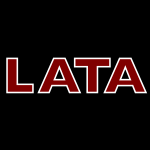 LATA-2010-VelardoD #comparison #order #petri net
LATA-2010-VelardoD #comparison #order #petri net- Language-Based Comparison of Petri Nets with Black Tokens, Pure Names and Ordered Data (FRV, GD), pp. 524–535.
 IFL-2010-TorontoM #probability
IFL-2010-TorontoM #probability- From Bayesian Notation to Pure Racket via Discrete Measure-Theoretic Probability in λ ZFC (NT, JM), pp. 89–104.
 OOPSLA-2010-KatsVW #declarative #syntax
OOPSLA-2010-KatsVW #declarative #syntax- Pure and declarative syntax definition: paradise lost and regained (LCLK, EV, GW), pp. 918–932.
 POPL-2010-Hutchins #type system
POPL-2010-Hutchins #type system- Pure subtype systems (DSH), pp. 287–298.
 LDTA-2009-SloaneKV10 #attribute grammar #object-oriented
LDTA-2009-SloaneKV10 #attribute grammar #object-oriented- A Pure Object-Oriented Embedding of Attribute Grammars (AMS, LCLK, EV), pp. 205–219.
 LICS-2010-SilesH #similarity #type system
LICS-2010-SilesH #similarity #type system- Equality Is Typable in Semi-full Pure Type Systems (VS, HH), pp. 21–30.
 FASE-2009-LeinoM #consistency #proving
FASE-2009-LeinoM #consistency #proving- Proving Consistency of Pure Methods and Model Fields (KRML, RM), pp. 231–245.
 ICFP-2009-FischerKS #functional #lazy evaluation #nondeterminism #programming
ICFP-2009-FischerKS #functional #lazy evaluation #nondeterminism #programming- Purely functional lazy non-deterministic programming (SF, OK, CcS), pp. 11–22.
 ICEIS-ISAS-2009-MansourH #approach #database #framework #rule-based #using #xml
ICEIS-ISAS-2009-MansourH #approach #database #framework #rule-based #using #xml- A Rule-based Approach and Framework for Managing Best Practices — An XML-based Management using Pure Database System Utilities (EM, HH), pp. 109–115.
 CIKM-2009-BertholdBKMNT
CIKM-2009-BertholdBKMNT- Pure spreading activation is pointless (MRB, UB, TK, MM, UN, KT), pp. 1915–1918.
 LDTA-2008-Dolstra09 #domain-specific language #functional #lazy evaluation #performance
LDTA-2008-Dolstra09 #domain-specific language #functional #lazy evaluation #performance- Maximal Laziness: An Efficient Interpretation Technique for Purely Functional DSLs (ED), pp. 81–99.
 CSL-2009-Tranquilli #confluence #difference
CSL-2009-Tranquilli #confluence #difference- Confluence of Pure Differential Nets with Promotion (PT), pp. 500–514.
 CASE-2008-HouZWCT #adaptation #approach #fuzzy #nondeterminism #using
CASE-2008-HouZWCT #adaptation #approach #fuzzy #nondeterminism #using- Adaptive dynamic surface control of a class of uncertain nonlinear systems in pure-feedback form using fuzzy backstepping approach (ZGH, AMZ, FXW, LC, MT), pp. 821–826.
 FoSSaCS-2008-Mishra-LingerS #morphism #polymorphism #type system
FoSSaCS-2008-Mishra-LingerS #morphism #polymorphism #type system- Erasure and Polymorphism in Pure Type Systems (NML, TS), pp. 350–364.
 STOC-2008-SkopalikV #nash
STOC-2008-SkopalikV #nash- Inapproximability of pure nash equilibria (AS, BV), pp. 355–364.
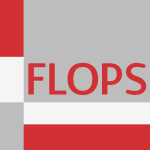 FLOPS-2008-KiselyovBFS #declarative
FLOPS-2008-KiselyovBFS #declarative- Pure, Declarative, and Constructive Arithmetic Relations (Declarative Pearl) (OK, WEB, DPF, CcS), pp. 64–80.
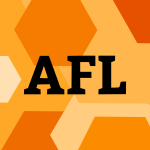 AFL-2008-MasopustM #automaton #multi #on the
AFL-2008-MasopustM #automaton #multi #on the- On Pure Multi-Pushdown Automata that Perform Complete-Pushdown Pops (TM, AM), pp. 325–336.
 FM-2008-RudichDM #specification
FM-2008-RudichDM #specification- Checking Well-Formedness of Pure-Method Specifications (AR, ÁD, PM), pp. 68–83.
 ICFP-2008-DolstraL #functional #linux #named
ICFP-2008-DolstraL #functional #linux #named- NixOS: a purely functional Linux distribution (ED, AL), pp. 367–378.
 ICFP-2008-Nanavati #case study #experience
ICFP-2008-Nanavati #case study #experience- Experience report: a pure shirt fits (RN), pp. 347–352.
 IFL-2008-BrasselF #functional #lazy evaluation #logic programming #source code
IFL-2008-BrasselF #functional #lazy evaluation #logic programming #source code- From Functional Logic Programs to Purely Functional Programs Preserving Laziness (BB, SF), pp. 25–42.
 ICPR-2008-JunejoF
ICPR-2008-JunejoF- Practical pure pan and pure tilt camera calibration (INJ, HF), pp. 1–4.
 POPL-2008-Danielsson #analysis #complexity #data type #functional #lightweight
POPL-2008-Danielsson #analysis #complexity #data type #functional #lightweight- Lightweight semiformal time complexity analysis for purely functional data structures (NAD), pp. 133–144.
 SPLC-2008-Beuche #modelling #product line
SPLC-2008-Beuche #modelling #product line- Modeling and Building Software Product Lines with Pure: : Variants (DB), p. 358.
 CSL-2008-HofmannS #pointer #source code
CSL-2008-HofmannS #pointer #source code- Pure Pointer Programs with Iteration (MH, US), pp. 79–93.
 LICS-2008-Burel #deduction #first-order #representation #type system #using
LICS-2008-Burel #deduction #first-order #representation #type system #using- A First-Order Representation of Pure Type Systems Using Superdeduction (GB), pp. 253–263.
 RTA-2008-Ueda #encoding #graph grammar #λ-calculus
RTA-2008-Ueda #encoding #graph grammar #λ-calculus- Encoding the Pure λ Calculus into Hierarchical Graph Rewriting (KU), pp. 392–408.
 FASE-2007-DarvasL #implementation #reasoning
FASE-2007-DarvasL #implementation #reasoning- Practical Reasoning About Invocations and Implementations of Pure Methods (ÁD, KRML), pp. 336–351.
 CIAA-J-2006-Maletti07
CIAA-J-2006-Maletti07- Pure and O-Substitution (AM), pp. 829–845.
 CIKM-2007-LvC #concept #information retrieval #named #peer-to-peer #semantics
CIKM-2007-LvC #concept #information retrieval #named #peer-to-peer #semantics- CTO: concept tree based semantic overlay for pure peer-to-peer information retrieval (JL, XC), pp. 931–934.
 TLCA-2007-CousineauD #calculus #type system
TLCA-2007-CousineauD #calculus #type system- Embedding Pure Type Systems in the λ-π-Calculus Modulo (DC, GD), pp. 102–117.
 ESOP-2006-JayK #calculus
ESOP-2006-JayK #calculus- Pure Pattern Calculus (CBJ, DK), pp. 100–114.
 CIAA-2006-OnderB #proving
CIAA-2006-OnderB #proving- XSLT Version 2.0 Is Turing-Complete: A Purely Transformation Based Proof (RO, ZB), pp. 275–276.
 IFL-2006-BonenfantFHH #execution #functional #worst-case
IFL-2006-BonenfantFHH #execution #functional #worst-case- Worst-Case Execution Times for a Purely Functional Language (AB, CF, KH, RH), pp. 235–252.
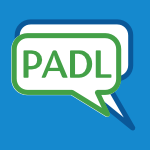 PADL-2006-SahaR #evaluation #incremental #logic programming #prolog #source code
PADL-2006-SahaR #evaluation #incremental #logic programming #prolog #source code- Incremental Evaluation of Tabled Prolog: Beyond Pure Logic Programs (DS, CRR), pp. 215–229.
 IJCAR-2006-GregoireT #composition #functional #library #scalability
IJCAR-2006-GregoireT #composition #functional #library #scalability- A Purely Functional Library for Modular Arithmetic and Its Application to Certifying Large Prime Numbers (BG, LT), pp. 423–437.
 CBSE-2005-Dolstra #component #deployment #functional #performance
CBSE-2005-Dolstra #component #deployment #functional #performance- Efficient Upgrading in a Purely Functional Component Deployment Model (ED), pp. 219–234.
 DLT-2005-Saari #on the #sequence
DLT-2005-Saari #on the #sequence- On the Frequency of Letters in Pure Binary Morphic Sequences (KS), pp. 397–408.
 CEFP-2005-Hammond #approach #behaviour #bound #functional #programming
CEFP-2005-Hammond #approach #behaviour #bound #functional #programming- Exploiting Purely Functional Programming to Obtain Bounded Resource Behaviour: The Hume Approach (KH), pp. 100–134.
 STOC-2004-FabrikantPT #complexity #nash
STOC-2004-FabrikantPT #complexity #nash- The complexity of pure Nash equilibria (AF, CHP, KT), pp. 604–612.
 DATE-2003-NicolescuV #approach #detection #fault #tool support
DATE-2003-NicolescuV #approach #detection #fault #tool support- Detecting Soft Errors by a Purely Software Approach: Method, Tools and Experimental Results (BN, RV), pp. 20057–20063.
 SAS-2003-TardieuS #termination
SAS-2003-TardieuS #termination- Instantaneous Termination in Pure Esterel (OT, RdS), pp. 91–108.
 ICALP-2003-GutierrezR #calculus #type system
ICALP-2003-GutierrezR #calculus #type system- Expansion Postponement via Cut Elimination in Sequent Calculi for Pure Type Systems (FG, BCR), pp. 956–968.
 POPL-2003-BartheCKL #type system
POPL-2003-BartheCKL #type system- Pure patterns type systems (GB, HC, CK, LL), pp. 250–261.
 SAT-2003-SemerjianM #case study #physics #problem #random #satisfiability
SAT-2003-SemerjianM #case study #physics #problem #random #satisfiability- A Study of Pure Random Walk on Random Satisfiability Problems with “Physical” Methods (GS, RM), pp. 120–134.
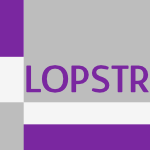 LOPSTR-2002-GutierrezR #calculus #type system #verification
LOPSTR-2002-GutierrezR #calculus #type system #verification- A Cut-Free Sequent Calculus for Pure Type Systems Verifying the Structural Rules of Gentzen/Kleene (FG, BCR), pp. 17–31.
 ICLP-2002-Bruscoli #logic #proving
ICLP-2002-Bruscoli #logic #proving- A Purely Logical Account of Sequentiality in Proof Search (PB), pp. 302–316.
 IJCAR-2001-Benedetti #graph
IJCAR-2001-Benedetti #graph- Conditional Pure Literal Graphs (MB), pp. 331–346.
 TLCA-2001-Gianantonio #game studies #lazy evaluation #semantics #λ-calculus
TLCA-2001-Gianantonio #game studies #lazy evaluation #semantics #λ-calculus- Game Semantics for the Pure Lazy λ-calculus (PDG), pp. 106–120.
 IFL-2000-ZornerKEP #functional
IFL-2000-ZornerKEP #functional- Polygonizing Implicit Surfaces in a Purely Functional Way (THGZ, PWMK, MCJDvE, MJP), pp. 158–175.
 TLCA-1999-Zwanenburg #type system
TLCA-1999-Zwanenburg #type system- Pure Type Systems with Subtyping (JZ), pp. 381–396.
 CSL-1998-Barthe #normalisation #type system
CSL-1998-Barthe #normalisation #type system- Existence and Uniqueness of Normal Forms in Pure Type Systems with βη-Conversion (GB), pp. 241–259.
 ICFP-1997-SpiliopoulouHD #approach #distributed #functional #programming
ICFP-1997-SpiliopoulouHD #approach #distributed #functional #programming- Distributed Programming, a Purely Functional Approach (ES, IH, ND), p. 320.
 TLCA-1997-BerardiB #data type #functional
TLCA-1997-BerardiB #data type #functional- Minimum Information Code in a Pure Functional Language with Data Types (SB, LB), pp. 30–45.
 TLCA-1997-Courant #calculus #type system
TLCA-1997-Courant #calculus #type system- A Module Calculus for Pure Type Systems (JC), pp. 112–128.
 STOC-1996-KaplanT #functional
STOC-1996-KaplanT #functional- Purely Functional Representations of Catenable Sorted Lists (HK, RET), pp. 202–211.
 LOPSTR-1996-Brunekreef #prolog #source code
LOPSTR-1996-Brunekreef #prolog #source code- A Transformation Tool for Pure Prolog Programs (JB), pp. 130–145.
 POPL-1996-Pippenger #lisp
POPL-1996-Pippenger #lisp- Pure versus Impure LISP (NP), pp. 104–109.
 ESOP-J-1994-GiegerichK95 #comparison #functional #imperative
ESOP-J-1994-GiegerichK95 #comparison #functional #imperative- A Comparison of Imperative and Purely Functional Suffix Tree Constructions (RG, SK), pp. 187–218.
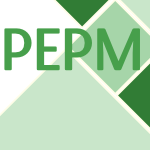 PEPM-1995-Mogensen #online #partial evaluation #self #λ-calculus
PEPM-1995-Mogensen #online #partial evaluation #self #λ-calculus- Self-applicable Online Partial Evaluation of Pure λ Calculus (TÆM), pp. 39–44.
 DLT-1995-MateiT #context-free grammar
DLT-1995-MateiT #context-free grammar- (0, 1)-Total Pure Context-Free Grammars (CM, FLT), pp. 148–153.
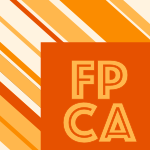 FPCA-1995-Okasaki #functional
FPCA-1995-Okasaki #functional- Purely Functional Random-Access Lists (CO), pp. 86–95.
 TLCA-1995-Barthe #type system
TLCA-1995-Barthe #type system- Extensions of Pure Type Systems (GB), pp. 16–31.
 DLT-1993-Georgescu #context-free grammar #on the
DLT-1993-Georgescu #context-free grammar #on the- On the Index of Pure Context-free Grammars and Languages (GG), pp. 60–69.
 FPCA-1993-ChuangG #functional #multi #programming #realtime
FPCA-1993-ChuangG #functional #multi #programming #realtime- Real-Time Deques, Multihead Thring Machines, and Purely Functional Programming (TRC, BG), pp. 289–298.
 OOPSLA-1993-HarrisonO #programming
OOPSLA-1993-HarrisonO #programming- Subject-Oriented Programming (A Critique of Pure Objects) (WHH, HO), pp. 411–428.
 SAC-1993-HarrisonG #functional #programming
SAC-1993-HarrisonG #functional #programming- Dynamic Programming in a Pure Functional Language (RH, CAG), pp. 179–186.
 TLCA-1993-McKinnaP #type system
TLCA-1993-McKinnaP #type system- Pure Type Systems Formalized (JM, RP), pp. 289–305.
 PEPM-1992-Mogensen #partial evaluation #self #λ-calculus
PEPM-1992-Mogensen #partial evaluation #self #λ-calculus- Self-applicable Partial Evaluation for Pure λ Calculus (TÆM), pp. 116–121.
 ICALP-1992-PhoaF #ml #semantics
ICALP-1992-PhoaF #ml #semantics- A Proposed Categorial Semantics for Pure ML (WP, MPF), pp. 533–544.
 PODS-1991-BusscheP #power of
PODS-1991-BusscheP #power of- The Expressive Power of Structured Values in Pure OODB’s (JVdB, JP), pp. 291–299.
 OOPSLA-1991-ChambersU #object-oriented
OOPSLA-1991-ChambersU #object-oriented- Making Pure Object-Oriented Languages Practical (CC, DU), pp. 1–15.
 LOPSTR-1991-Popelinsky #prolog #source code #synthesis #towards
LOPSTR-1991-Popelinsky #prolog #source code #synthesis #towards- Towards Synthesis of Nearly Pure Prolog Programs (Extende Abstract) (LP), pp. 94–96.
 ICLP-1987-SaccaZ87 #implementation #logic #query #recursion
ICLP-1987-SaccaZ87 #implementation #logic #query #recursion- Implementation of Recursive Queries for a Data Language Based on Pure Horn Logic (DS, CZ), pp. 104–135.
 CADE-1986-HannaD #functional #implementation #logic
CADE-1986-HannaD #functional #implementation #logic- Purely Functional Implementation of a Logic (FKH, ND), pp. 598–607.
 ICALP-1982-Faustini #data flow #semantics
ICALP-1982-Faustini #data flow #semantics- An Operational Semantics for Pure Dataflow (AAF), pp. 212–224.
 ITiCSE-2015-AycockPS #design #experience #game studies #python
ITiCSE-2015-AycockPS #design #experience #game studies #python ICFP-2015-Chlipala #compilation #functional #optimisation
ICFP-2015-Chlipala #compilation #functional #optimisation ICFP-2015-NewtonFV #adaptation #scalability
ICFP-2015-NewtonFV #adaptation #scalability SPLC-2015-BeucheH #lifecycle #product line #using
SPLC-2015-BeucheH #lifecycle #product line #using IFL-2014-AchtenSDP #composition #interactive #programming #scalability
IFL-2014-AchtenSDP #composition #interactive #programming #scalability IJCAR-2014-LahavZ #calculus #satisfiability
IJCAR-2014-LahavZ #calculus #satisfiability RTA-TLCA-2014-RouxD #type system
RTA-TLCA-2014-RouxD #type system CASE-2013-LiuTYG #modelling
CASE-2013-LiuTYG #modelling FoSSaCS-2013-HofmannRS #morphism #pointer #source code
FoSSaCS-2013-HofmannRS #morphism #pointer #source code ICFP-2013-McDonellCKL #functional #gpu #optimisation #source code
ICFP-2013-McDonellCKL #functional #gpu #optimisation #source code PPDP-2013-Holdermans #data type #functional #guidelines #random testing #testing
PPDP-2013-Holdermans #data type #functional #guidelines #random testing #testing LDTA-J-2009-SloaneKV #attribute grammar
LDTA-J-2009-SloaneKV #attribute grammar ICFP-2012-SeveriV #finite #normalisation #recursion #type system
ICFP-2012-SeveriV #finite #normalisation #recursion #type system IFL-2012-WuMBS #case study #experience #lazy evaluation #mining
IFL-2012-WuMBS #case study #experience #lazy evaluation #mining ECOOP-2012-ReichenbachSI #java #named #parallel #programming
ECOOP-2012-ReichenbachSI #java #named #parallel #programming PPDP-2012-PlasmeijerLMAK #functional #programming
PPDP-2012-PlasmeijerLMAK #functional #programming FoSSaCS-2011-BernardyL #parametricity #type system
FoSSaCS-2011-BernardyL #parametricity #type system ICALP-v2-2011-KolliasR #game studies
ICALP-v2-2011-KolliasR #game studies ICFP-2011-ChenDHA #functional #self #source code
ICFP-2011-ChenDHA #functional #self #source code CC-2011-Pearce #composition #java #named
CC-2011-Pearce #composition #java #named ICALP-v1-2010-HarksK #game studies #nash #on the
ICALP-v1-2010-HarksK #game studies #nash #on the ICALP-v2-2010-HofmannKS #functional #question #what
ICALP-v2-2010-HofmannKS #functional #question #what LATA-2010-VelardoD #comparison #order #petri net
LATA-2010-VelardoD #comparison #order #petri net IFL-2010-TorontoM #probability
IFL-2010-TorontoM #probability OOPSLA-2010-KatsVW #declarative #syntax
OOPSLA-2010-KatsVW #declarative #syntax POPL-2010-Hutchins #type system
POPL-2010-Hutchins #type system LDTA-2009-SloaneKV10 #attribute grammar #object-oriented
LDTA-2009-SloaneKV10 #attribute grammar #object-oriented LICS-2010-SilesH #similarity #type system
LICS-2010-SilesH #similarity #type system FASE-2009-LeinoM #consistency #proving
FASE-2009-LeinoM #consistency #proving ICFP-2009-FischerKS #functional #lazy evaluation #nondeterminism #programming
ICFP-2009-FischerKS #functional #lazy evaluation #nondeterminism #programming ICEIS-ISAS-2009-MansourH #approach #database #framework #rule-based #using #xml
ICEIS-ISAS-2009-MansourH #approach #database #framework #rule-based #using #xml CIKM-2009-BertholdBKMNT
CIKM-2009-BertholdBKMNT LDTA-2008-Dolstra09 #domain-specific language #functional #lazy evaluation #performance
LDTA-2008-Dolstra09 #domain-specific language #functional #lazy evaluation #performance CSL-2009-Tranquilli #confluence #difference
CSL-2009-Tranquilli #confluence #difference CASE-2008-HouZWCT #adaptation #approach #fuzzy #nondeterminism #using
CASE-2008-HouZWCT #adaptation #approach #fuzzy #nondeterminism #using FoSSaCS-2008-Mishra-LingerS #morphism #polymorphism #type system
FoSSaCS-2008-Mishra-LingerS #morphism #polymorphism #type system STOC-2008-SkopalikV #nash
STOC-2008-SkopalikV #nash FLOPS-2008-KiselyovBFS #declarative
FLOPS-2008-KiselyovBFS #declarative AFL-2008-MasopustM #automaton #multi #on the
AFL-2008-MasopustM #automaton #multi #on the FM-2008-RudichDM #specification
FM-2008-RudichDM #specification ICFP-2008-DolstraL #functional #linux #named
ICFP-2008-DolstraL #functional #linux #named ICFP-2008-Nanavati #case study #experience
ICFP-2008-Nanavati #case study #experience IFL-2008-BrasselF #functional #lazy evaluation #logic programming #source code
IFL-2008-BrasselF #functional #lazy evaluation #logic programming #source code ICPR-2008-JunejoF
ICPR-2008-JunejoF POPL-2008-Danielsson #analysis #complexity #data type #functional #lightweight
POPL-2008-Danielsson #analysis #complexity #data type #functional #lightweight SPLC-2008-Beuche #modelling #product line
SPLC-2008-Beuche #modelling #product line CSL-2008-HofmannS #pointer #source code
CSL-2008-HofmannS #pointer #source code LICS-2008-Burel #deduction #first-order #representation #type system #using
LICS-2008-Burel #deduction #first-order #representation #type system #using RTA-2008-Ueda #encoding #graph grammar #λ-calculus
RTA-2008-Ueda #encoding #graph grammar #λ-calculus FASE-2007-DarvasL #implementation #reasoning
FASE-2007-DarvasL #implementation #reasoning CIAA-J-2006-Maletti07
CIAA-J-2006-Maletti07 CIKM-2007-LvC #concept #information retrieval #named #peer-to-peer #semantics
CIKM-2007-LvC #concept #information retrieval #named #peer-to-peer #semantics TLCA-2007-CousineauD #calculus #type system
TLCA-2007-CousineauD #calculus #type system ESOP-2006-JayK #calculus
ESOP-2006-JayK #calculus CIAA-2006-OnderB #proving
CIAA-2006-OnderB #proving IFL-2006-BonenfantFHH #execution #functional #worst-case
IFL-2006-BonenfantFHH #execution #functional #worst-case PADL-2006-SahaR #evaluation #incremental #logic programming #prolog #source code
PADL-2006-SahaR #evaluation #incremental #logic programming #prolog #source code IJCAR-2006-GregoireT #composition #functional #library #scalability
IJCAR-2006-GregoireT #composition #functional #library #scalability CBSE-2005-Dolstra #component #deployment #functional #performance
CBSE-2005-Dolstra #component #deployment #functional #performance DLT-2005-Saari #on the #sequence
DLT-2005-Saari #on the #sequence CEFP-2005-Hammond #approach #behaviour #bound #functional #programming
CEFP-2005-Hammond #approach #behaviour #bound #functional #programming STOC-2004-FabrikantPT #complexity #nash
STOC-2004-FabrikantPT #complexity #nash DATE-2003-NicolescuV #approach #detection #fault #tool support
DATE-2003-NicolescuV #approach #detection #fault #tool support SAS-2003-TardieuS #termination
SAS-2003-TardieuS #termination ICALP-2003-GutierrezR #calculus #type system
ICALP-2003-GutierrezR #calculus #type system POPL-2003-BartheCKL #type system
POPL-2003-BartheCKL #type system SAT-2003-SemerjianM #case study #physics #problem #random #satisfiability
SAT-2003-SemerjianM #case study #physics #problem #random #satisfiability LOPSTR-2002-GutierrezR #calculus #type system #verification
LOPSTR-2002-GutierrezR #calculus #type system #verification ICLP-2002-Bruscoli #logic #proving
ICLP-2002-Bruscoli #logic #proving IJCAR-2001-Benedetti #graph
IJCAR-2001-Benedetti #graph TLCA-2001-Gianantonio #game studies #lazy evaluation #semantics #λ-calculus
TLCA-2001-Gianantonio #game studies #lazy evaluation #semantics #λ-calculus IFL-2000-ZornerKEP #functional
IFL-2000-ZornerKEP #functional TLCA-1999-Zwanenburg #type system
TLCA-1999-Zwanenburg #type system CSL-1998-Barthe #normalisation #type system
CSL-1998-Barthe #normalisation #type system ICFP-1997-SpiliopoulouHD #approach #distributed #functional #programming
ICFP-1997-SpiliopoulouHD #approach #distributed #functional #programming TLCA-1997-BerardiB #data type #functional
TLCA-1997-BerardiB #data type #functional TLCA-1997-Courant #calculus #type system
TLCA-1997-Courant #calculus #type system STOC-1996-KaplanT #functional
STOC-1996-KaplanT #functional LOPSTR-1996-Brunekreef #prolog #source code
LOPSTR-1996-Brunekreef #prolog #source code POPL-1996-Pippenger #lisp
POPL-1996-Pippenger #lisp ESOP-J-1994-GiegerichK95 #comparison #functional #imperative
ESOP-J-1994-GiegerichK95 #comparison #functional #imperative PEPM-1995-Mogensen #online #partial evaluation #self #λ-calculus
PEPM-1995-Mogensen #online #partial evaluation #self #λ-calculus DLT-1995-MateiT #context-free grammar
DLT-1995-MateiT #context-free grammar FPCA-1995-Okasaki #functional
FPCA-1995-Okasaki #functional TLCA-1995-Barthe #type system
TLCA-1995-Barthe #type system DLT-1993-Georgescu #context-free grammar #on the
DLT-1993-Georgescu #context-free grammar #on the FPCA-1993-ChuangG #functional #multi #programming #realtime
FPCA-1993-ChuangG #functional #multi #programming #realtime OOPSLA-1993-HarrisonO #programming
OOPSLA-1993-HarrisonO #programming SAC-1993-HarrisonG #functional #programming
SAC-1993-HarrisonG #functional #programming TLCA-1993-McKinnaP #type system
TLCA-1993-McKinnaP #type system PEPM-1992-Mogensen #partial evaluation #self #λ-calculus
PEPM-1992-Mogensen #partial evaluation #self #λ-calculus ICALP-1992-PhoaF #ml #semantics
ICALP-1992-PhoaF #ml #semantics PODS-1991-BusscheP #power of
PODS-1991-BusscheP #power of OOPSLA-1991-ChambersU #object-oriented
OOPSLA-1991-ChambersU #object-oriented LOPSTR-1991-Popelinsky #prolog #source code #synthesis #towards
LOPSTR-1991-Popelinsky #prolog #source code #synthesis #towards ICLP-1987-SaccaZ87 #implementation #logic #query #recursion
ICLP-1987-SaccaZ87 #implementation #logic #query #recursion CADE-1986-HannaD #functional #implementation #logic
CADE-1986-HannaD #functional #implementation #logic ICALP-1982-Faustini #data flow #semantics
ICALP-1982-Faustini #data flow #semantics









